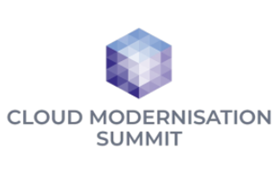Over half of internal audit leaders say that they are seeing real ROI as a result of efforts to implement transformative initiatives in talent, processes and technologies.

The views come as part of a survey conducted by Protoviti, which finds that nearly three out of four chief audit executives (CAEs) and senior internal audit leaders say that their organisations have completed or are currently undertaking ventures to transform and innovate their internal audit function.
Seventy percent of internal audit leaders said their department’s focus on innovation and transformation increased in the last year. Strong progression of next-generation journeys is a promising development for internal audit groups who have historically struggled to allocate time and resources to innovate their processes, putting them at risk of falling behind in skills, methodologies, and use of data and technology.
This progress is underpinned by a consensus that these next-gen efforts are worthwhile from a bottom-line standpoint. Over half of internal audit leaders (52%) see moderate to high return on investment from their respective innovation and transformation activities.
Andrew Struthers-Kennedy, a Protiviti managing director and global leader of the firm’s Internal Audit and Financial Advisory practice, said:
“Many organisations are beginning to see that regardless of their scale or industry, there are numerous benefits to be realised through the adoption of next-generation practices in governance, methodology, data and technology within internal audit, and we expect many leaders will continue to accelerate their transformation efforts,”
“Survey respondents indicated there is increasing desire from senior management, audit committees and boards for internal audit functions to become more technology- and data-enabled in order to add value to their organisations,” Struthers-Kennedy added.
“It’s incumbent upon CAEs to become or designate a ‘transformation director’ to ensure their group adopts agile auditing and becomes a more strategic partner to their organisation’s leadership,” Struthers-Kennedy continued.
Respondents to the global survey expressed that the area in which they have the largest talent and skills gap is in enabling technology, including advanced analytics, automation, machine learning and artificial intelligence, as well as process mining.
While most plan to develop these skills through training of existing employees, there are other viable options to consider, including external hiring, co-sourcing and guest resource or rotational programmes, to avoid burning out internal staff already working at capacity on operational and delivery tasks.
Mark Peters, a Protiviti managing director, said:
“For organisations that have yet to start or are in the early stages of their next-gen internal audit journeys, there are three keys to establishing a solid foundation for success.”
“Begin with small pilot projects that internal stakeholders can learn from and expand on; communicate a clear vision to audit teams about why there’s a need to make changes and what the changed state will look like; and cultivate a culture that encourages employees of all levels and departments to bring an innovative mindset to every task,” Peters added.
Ashley Cuevas, global innovation lead at Protoviti said:
“We know innovation needs investment. There are short-term needs and long-term gains, and these need to be balanced. You can’t just try innovation for a quarter and then drop it. You must have longer-term vision, which will drive both effectiveness for the near term and efficiency over the long term.”
Cloud Modernisation Summit
Part of the Digital Trust Europe Series
The Cloud Modernisation Summit is an in-person event that forms part of the Digital Trust Europe series. The event will feature highly technical content, presented by leading experts in data management and data science.
The Cloud Modernisation Summit is designed exclusively for data scientists, data engineers, analysts, developers, researchers and ML practitioners, and will enable them to learn from the world’s leading experts and organisations.
FIND OUT MORE ABOUT THE CLOUD MODERNISATION SUMMIT













No comments yet